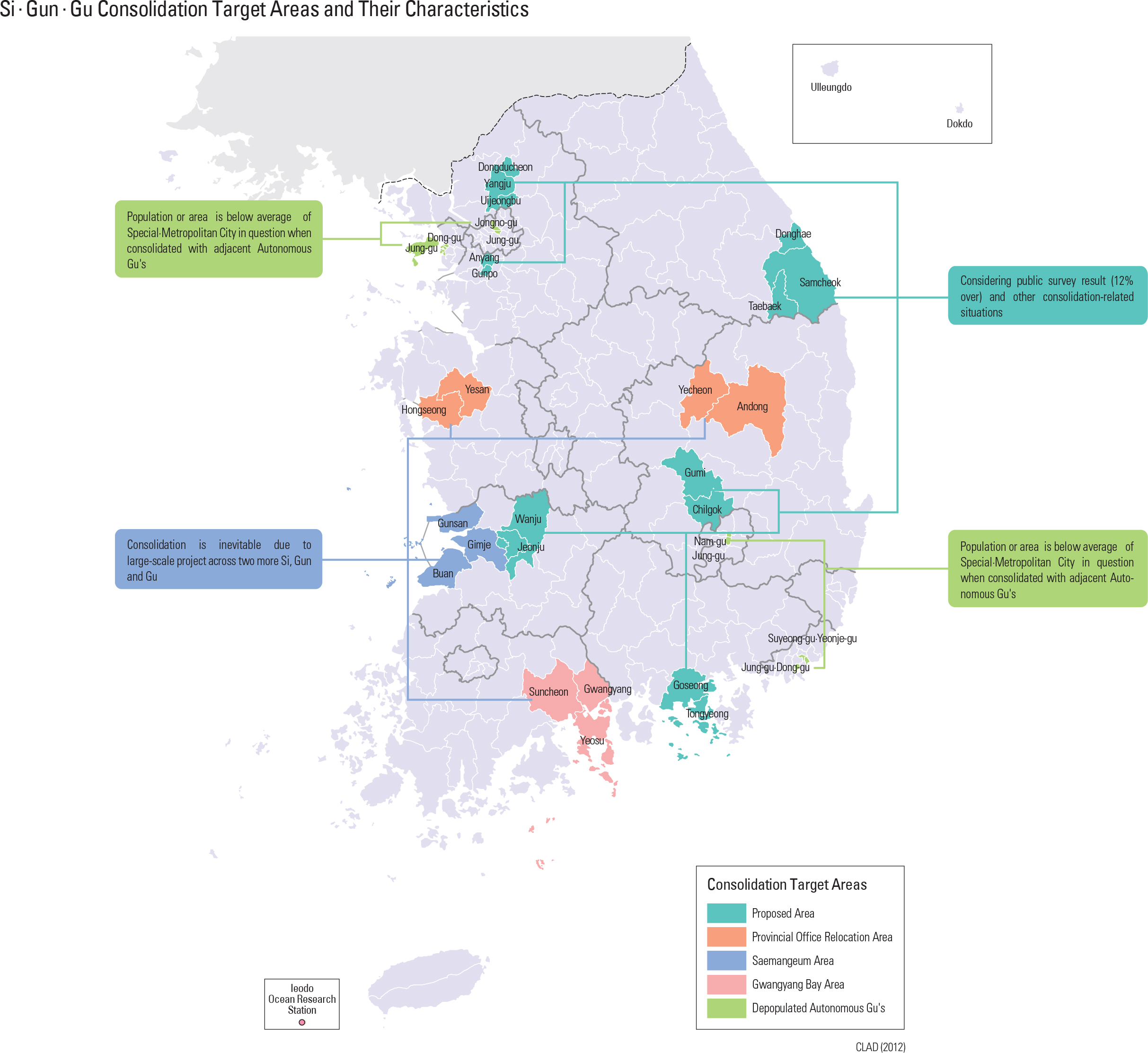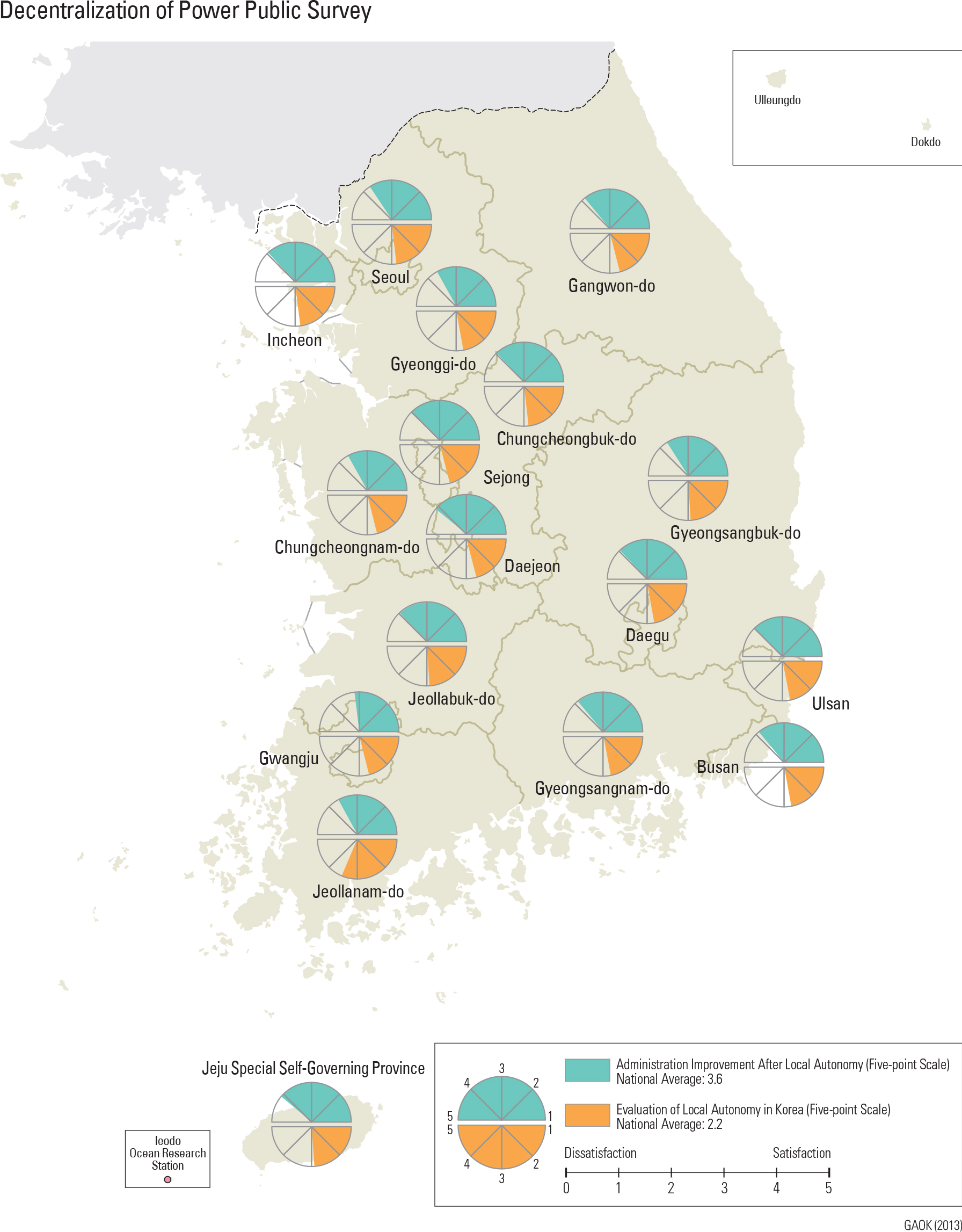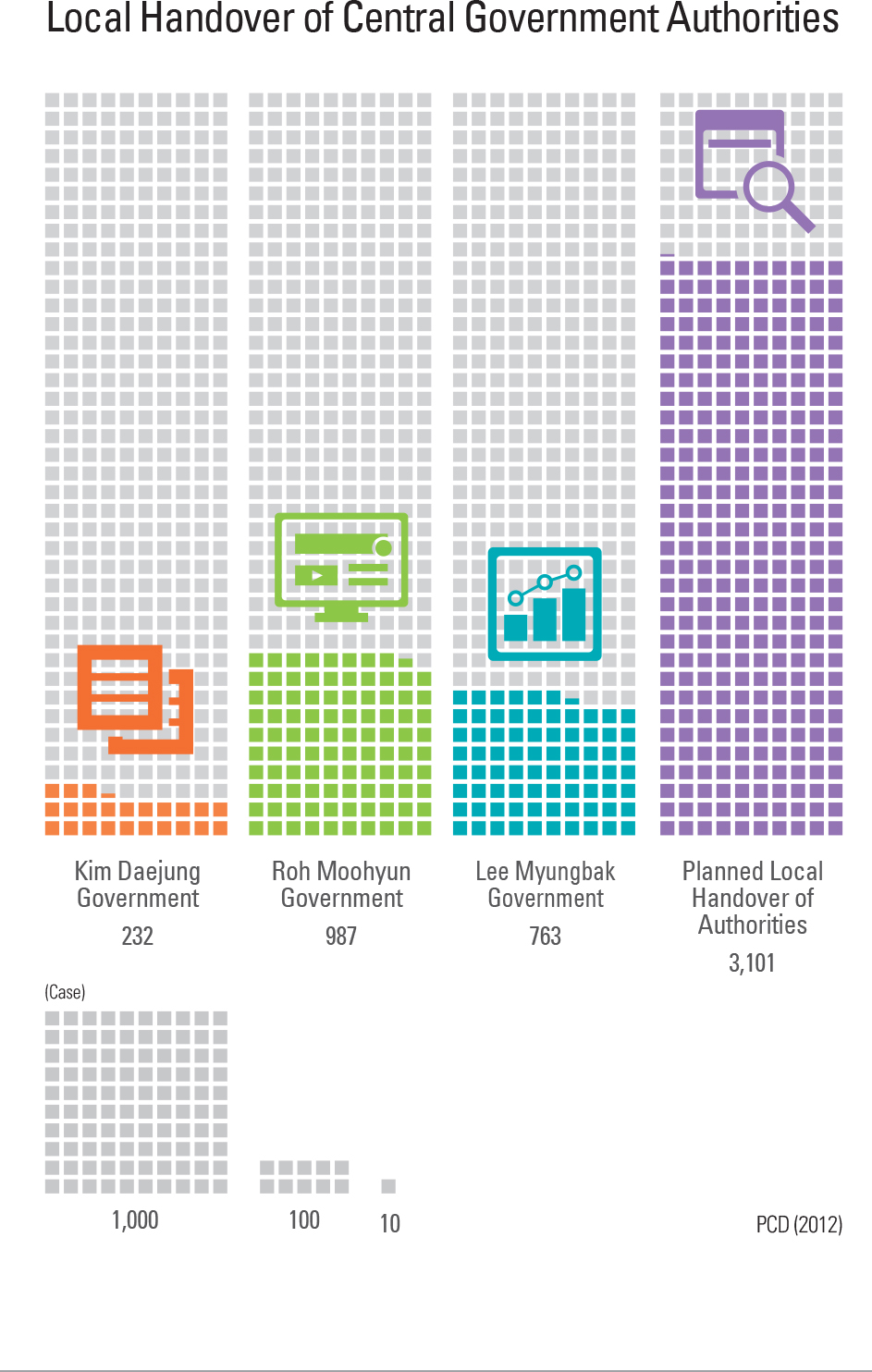Rapid urbanization and industrialization since the 1960s have lead to numerous problems not the least of which includes the decreasing efficiency of local governmental administration and the weakening economy of local self-governing bodies – a process that makes the fostering of greater local autonomy even more difficult. One proposed solution included a restructuring of administrative jurisdictions. After a series of discussions in 1994, Si·Gun·Gu was consolidated by the central government to create 40 consolidated cities in 1995. Yeosu-si, Yeocheon-si, and Yeocheon-gun were then consolidated in 1998. The consolidated cities of Jeju-si and Seogwipo-si were also established along with the creation of the Jeju Special Self-Governing Province in 2006. The cities of Changwon-si, Masan-si, and Jinhae-si were consolidated in 2009. Due to the enactment and implementation of the Special Act on the Transformation of Local Administrative System, the Si·Gun·Gu consolidation has been pushed forward as one of key tasks. Based on the Act, the consolidation targets 36 Si·Gun·Gus within 16 regions which meet various conditions including the local governments’ own proposal along with the determination that they represented a depopulated locality. One outcome of this effort is that Cheongju-si and Cheongwon-gun were consolidated on July 1, 2014 to form the consolidated city of Cheongju-si.
As the notion of local autonomy expanded with the composition of local councils in 1991, concrete discussion on redistribution of both authority and administrative affairs between central and local governments began. With the launch of the President Kim Daejung government in 1998, the decentralization of the central administrative authority became one of 100 governmental reform tasks. The formation of the Presidential Commission for Promotion of Local Empowerment (hereafter, PCPLE) was then implemented. The decentralization of power was pursued according to three main principles: decentralization first followed by supplementation later, subsidiarity, and comprehensiveness. Subsequently, the President Roh Moohyun government stated that the decentralization was one of two main government reform tasks, and the Presidential Committee on Government Innovation and Decentralization (hereafter, PCGID) was launched. The key function of the Committee was to discuss the vision and strategies for government innovation and decentralization and to deliberate the implementation and evaluation of related government tasks. The President Lee Myung-bak government enacted the Special Act on the Promotion of Decentralization and established the Presidential Committee on the Promotion of Decentralization (hereafter the PCPD) in 2008 by combining local empowerment functions from the PCPLE with decentralization functions from the PCGID. Most recently, the President Park Geun-hye government enacted the Special Act on Decentralization and the Transformation of Local Administrative System, and established the Presidential Committee on Local Autonomy Development by integrating both the PDPD and the Committee on the Transformation of Local Administrative System in order to pursue its own decentralization and local autonomy reform. The Committee actively implements various policies such as promoting the competitiveness of local self-governing bodies by way of the drastic decentralization of central authority, the rational redistribution of government affairs between central and local governments, the promotion of transferring of already designated local government-oriented affairs, and the systematically management of the tasks of decentralization.


